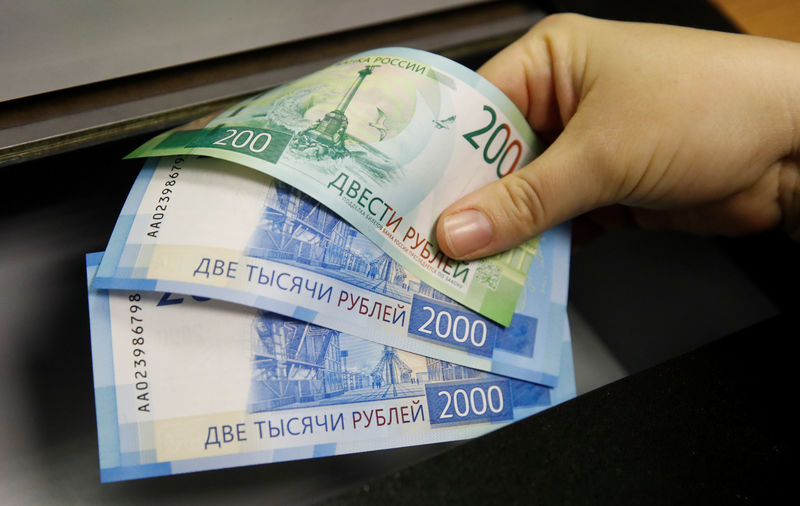MOSCOW (Reuters) - The Russian ruble weakened on Thursday as geopolitical concerns and disruption in emerging markets made investors wary of risky assets.
At 0754 GMT, the ruble was down 0.24 percent against the dollar at 68.10
Against the euro, the ruble lost 0.1 percent to 79.67
"The weight of the geopolitical premium and the factor of the global sales of emerging countries' currencies is a pretty enormous," analysts at BCS brokerage said.
Prices rose for crude oil, Russia's main export, as U.S. crude inventories declined. Brent crude oil (LCOc1), a global benchmark for crude, was up 0.38 percent at $77.43 a barrel.
Growing oil prices are backing up the ruble, analysts at VTB said in a note. "But the sentiment remains vulnerable to geopolitics and sanction talk," the analysts said.
U.S. sanctions against Russia, tied to an attack on a former Russian agent in Britain, came into effect on Monday, and a second batch may be imposed after 90 days.
U.S. senators have also prepared a draft bill that includes restrictions on investment in new Russian sovereign debt and bans several state-run Russian banks from operating in the United States.
Russian stock indexes rose. The dollar-denominated RTS index (IRTS) was up 0.33 percent to 1,088.71 points. The ruble-based MOEX Russian index (IMOEX) was 0.23 percent higher at 2,353.47 points, its highest since July 10.
"The favorable external background, coupled with the ongoing devaluation of the ruble, that helped exporters to benefit, allowed the index to focus on new historical highs," analysts at BCS brokerage said.
